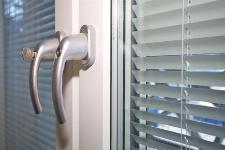Articles
Green Deal and Overheating
Tweet
As you may know for many years the LCCP has been concerning itself with retrofit, retrofit and yet more retrofit. We know that if we need to tackle existing stock, we have to get to grips with making our homes and buildings climate ready.
The Green Deal is the show in town in terms of helping us all make our buildings more efficient, using less energy and water, and safeguarding against rising energy prices in the process. For the first time with such a policy, water and energy saving measures have been brought together, in recognition of the importance of hot water saving measures in saving energy. The thing is how will these measures ensure we are ready for our changing climate?
In terms of adaptation, including water measures represents a vital step, helping to address issues of water supply and scarcity – particularly important in London, where our growing population requires us all to use water more efficiently. It is just as important however, to consider the ‘unintended consequences’ of energy efficiency, such as overheating where insulation is concerned. This is recognised in the Green Deal Code of Practice, for example in requiring that Green Deal Providers take into account ventilation requirements.
Here are our thoughts on the Green Deal and what we need to consider when it comes to adaptation. It also links to places that you can find all the expert knowledge, advice and guidance you need for working in retrofit – whether through Green Deal, ECO or any other arrangement.
What is the Green Deal?
The Green Deal has been available since January 2013, seeks to offer consumers energy efficiency improvements to their homes, community spaces and businesses at no upfront cost, with payments recouped through a charge in instalments on our bills. The list of eligible measures will include the more traditional energy saving measures (insulation, heating, glazing) as well as efficient hot water showers, systems and taps . The money will be made available through a range of Green Deal Providers and the ‘Golden Rule’ will ensure that repayments never exceed the expected bill saving.
Things we might need to think about:
-
- We need to make sure that the cash savings in terms of emission reduction are realisable – and not swallowed up by interest – this is going to be challenging with figures like 7.5% being quoted. As Green Deal take-up increases, we expect these rates to decrease
- Carbon savings are for the long term and the whole household reduces the energy that they use, ie. their lifestyle has been influenced
- That the work doesn’t mean that the household is at increase risk of overheating
In terms of adaptation, the Green Deal does present a challenge as cost savings are likely to be very small indeed. On the other hand we would be concerned if the alterations that people undertake improvements that actually use more energy; In terms of climate change adaptation, since solid wall insulation could account for the most cost effective intervention for the ECO element of the Green Deal across London – 25% of the nation’s hard to treat properties are in London and most of those (1,455,888) of those are solid walls. DECC’s impact assessment for Green Deal and ECO estimated that the national potential for solid wall insulation is 6.9m homes). For instance, last year LSx, Sustainable Merton and Parity Projects reviewed the Green Deal in the London Borough of Merton – 64% of the have solid walls – making solid wall insulation (internal and external). This means that according to Parity Projects Solid Wall insulation appeared to be one of the most powerful interventions to reduce carbon emissions in the area. We would also be concerned if these improvements increased thermal mass, without providing sufficient ventilation – this would present a risk that the household would be subject to blazing heat in the summer, could retain the heat overnight. This could result in overheating after a prolonged period of hot weather. The Energy Saving Trust training on the Green Deal will support assessors and providers to take this into account.
And finally, even if a household can secure cash savings by reducing their energy consumption, getting people to be interested in participating in schemes in the first place will be difficult if the benefits are not clearly explained. LSx recently worked with community groups under the EST, LEAF project, those engaged were at the were at the ‘greener’ end of the spectrum and they told us that in terms of barriers, cost is only part of the story – equal to this was cooperation with others in the home.
Strangely though – people said they were more willing to do things differently at home, than install energy-saving measures. They reported that they would rather boil less water in the kettle than put up with the disruption of having solid wall insulation, and we know that turning down the heating by one degree can save about 8% on our fuel bills, and it’s great that people might prefer to talk about their lifestyle choices, that’s all important for adaptation too!
I hope this incentive works out for us. We need a boost in the industry as all the cuts have had an impact on the industry.